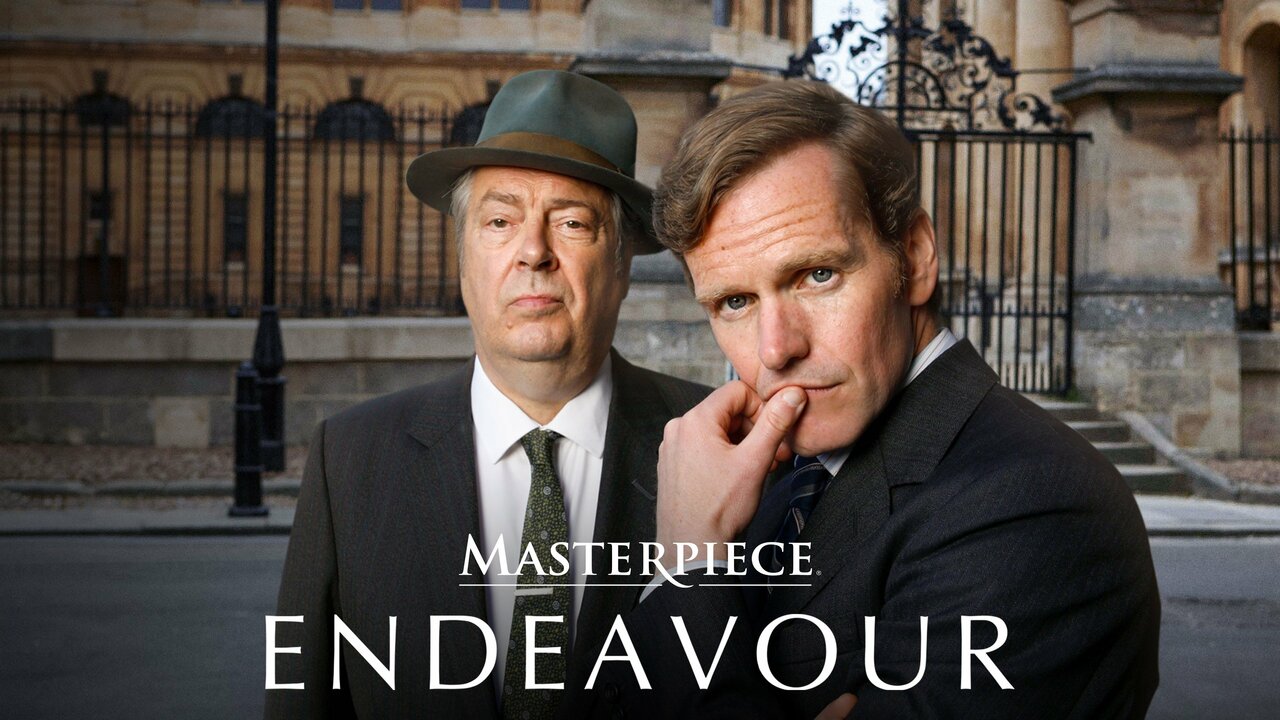Remember how much I love British murder mysteries? I really don't know what it is. They just remind me of the game of Clue, and how much fun I had playing that as a kid. I used to take the weapons from the board game and use them with my Barbies, creating Malibu murder mysteries.
It was SKIPPER in the DREAM HOUSE SALON with the CANDLESTICK!!!!
Anyway...
About six or seven years ago, I was really into the series Father Brown. I enjoyed the 1950s English vicar solving mysteries with his little team of rag tag villagers. Once the series got pulled from Netflix, a friend of mine with a similar bent for the preposterously posh introduced me to the Masterpiece series, Endeavour. Older episodes were available on Prime at that point, with new ones being released on PBS. She and I watched this show religiously for the next several years, until the series finale last summer.
For those of you who are familiar with Endeavour, you are aware that it is a precursor to the equally British series Inspector Morse of the 1980s-1990s. Both shows follow the character Endeavour Morse throughout various points in his career (Detective Constable, Detective Sergeant, Detective Inspector...). Endeavour begins in 1965 with a 20-something Morse as a Detective Constable in Oxford. Not your typical policeman, Morse is something of a brain, having been an Oxford student during his troubled past. Amazing at solving puzzles and riddles, Morse also favors the classics and is a big opera nut. To balance this out, he is also an on-and-off heavy drinker, has a passion for fast cars (eventually leading to his trademark Jaguar), and self-destructive behaviors. As a prequel, Endeavour endeavors (see what I did there?) to set the backstory for the Inspector Morse known to fans of the show that peaked in the 90s.
 |
Endeavour Morse and Inspector Fred Thursday, Endeavour (2012-2023)
Setting: Oxford England, 1960s-1970s |
 |
Endeavour Morse, Inspector Morse (1987-2000)
Setting: Oxford England, contemporary (1980s-1990s) |
But we are getting ahead of ourselves! BOTH of these successful television shows are based on characters created by mystery writer Colin Dexter. In fact, Mr. Dexter was instrumental in the creation of
Endeavour as a show, even making a cameo appearance in an early episode. (I am uncertain as to his involvement in the
Inspector Morse series, but I imagine he had a hand.) His contributions to
Endeavour undoubtedly lent authenticity and continuity to the titular character and, as any fan loyal to a longstanding show coming to an end can understand, I wanted more of these characters I'd grown to love.
What better way to do that than to go straight to the source?! This seemed like a good place to start:
This collection of short stories by Colin Dexter was available on Libby. It did take me some time to adapt to Frederick Davidson's readings of the stories, as I found him moderately difficult to understand without concerted effort and concentration. Once I made that aural adjustment, I was able to follow with ease.
I was surprised, however, at how many stories did not feature Morse or his cast of Oxford colleagues. There were several non-Morse stories, including even a Sherlock Holmes piece. I was confused by this, given the title of the book, and eventually just had to accept it as a collection of mysteries by Colin Dexter...with some Morse involvement.
Of those stories that did include Morse (just a few), I was surprised to find him featured as more of a background character: the older Inspector Morse, not the younger DC/DS Morse that I had come to know over the years. The stories in which he did appear -still his lovably bitter, prickly self- usually centered around his subordinates and co-workers, which I found disappointing. I checked this book out, after all, because of Morse!
To be honest, I found this book mostly forgettable. I read it a couple of months ago and am just now getting around to the review. (The kids are out of school and, while I'm still doing a lot of reading, I'm not getting to much writing time.) I'm struggling to remember many details about it, but I do recall feeling rather "meh" about the collection of stories. They made for good, diverting entertainment, but not something that will stay with me for years to come like the TV show.
Morse ultimately meets with a terribly tragic end. In fact, his entire life is one self-inflicted tragedy after another. Yet you can't help but like the guy. Sure, he's growly and condescending, but he has a good heart. Even though I didn't necessarily love this collection of stories by Colin Dexter, I do love the characters that he created. For this reason, I will probably pick up another Morse book in the future.



